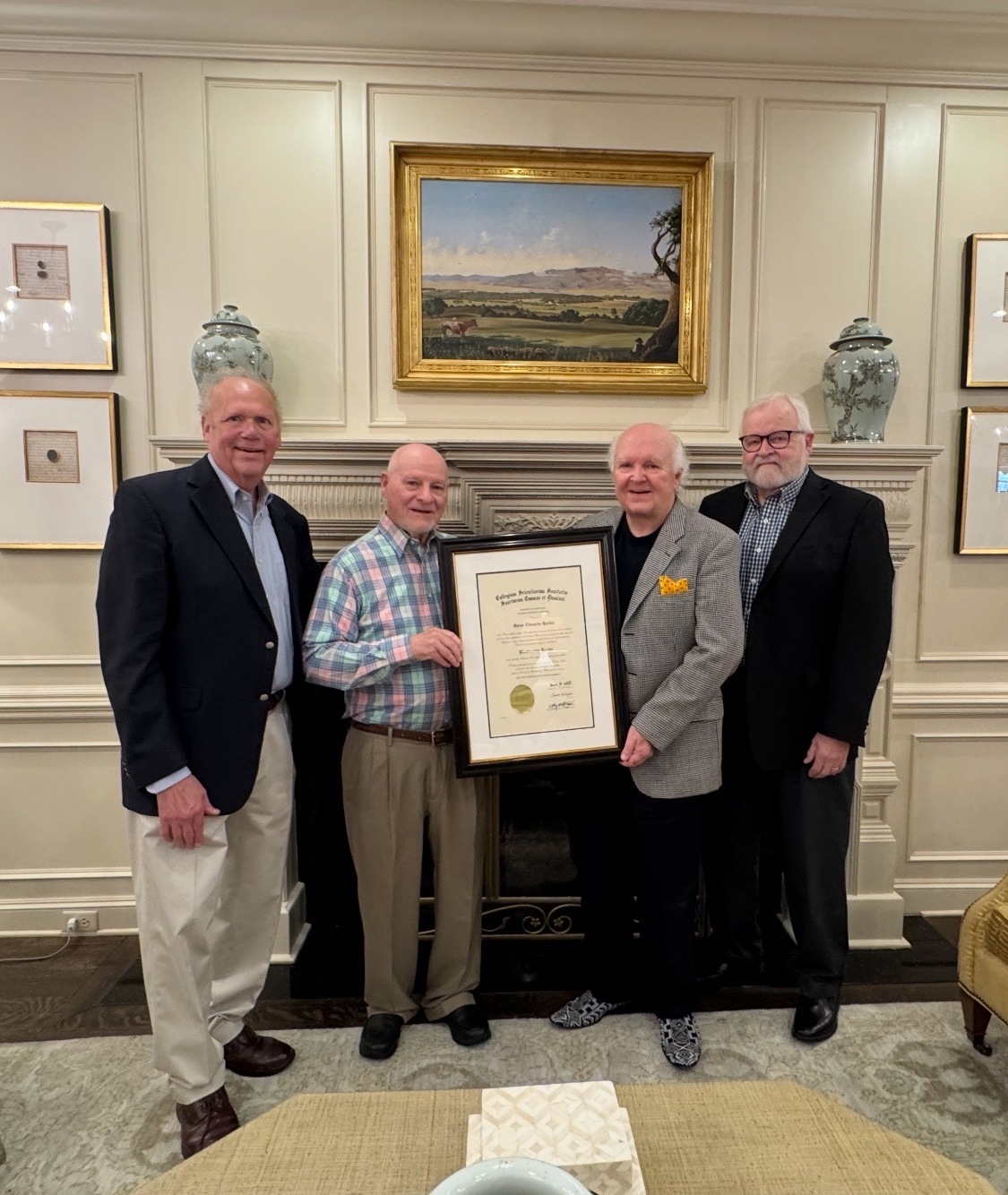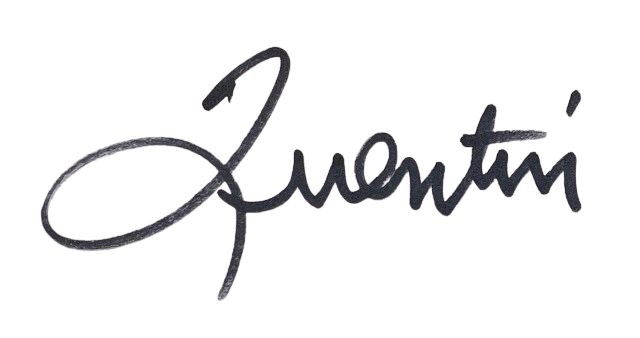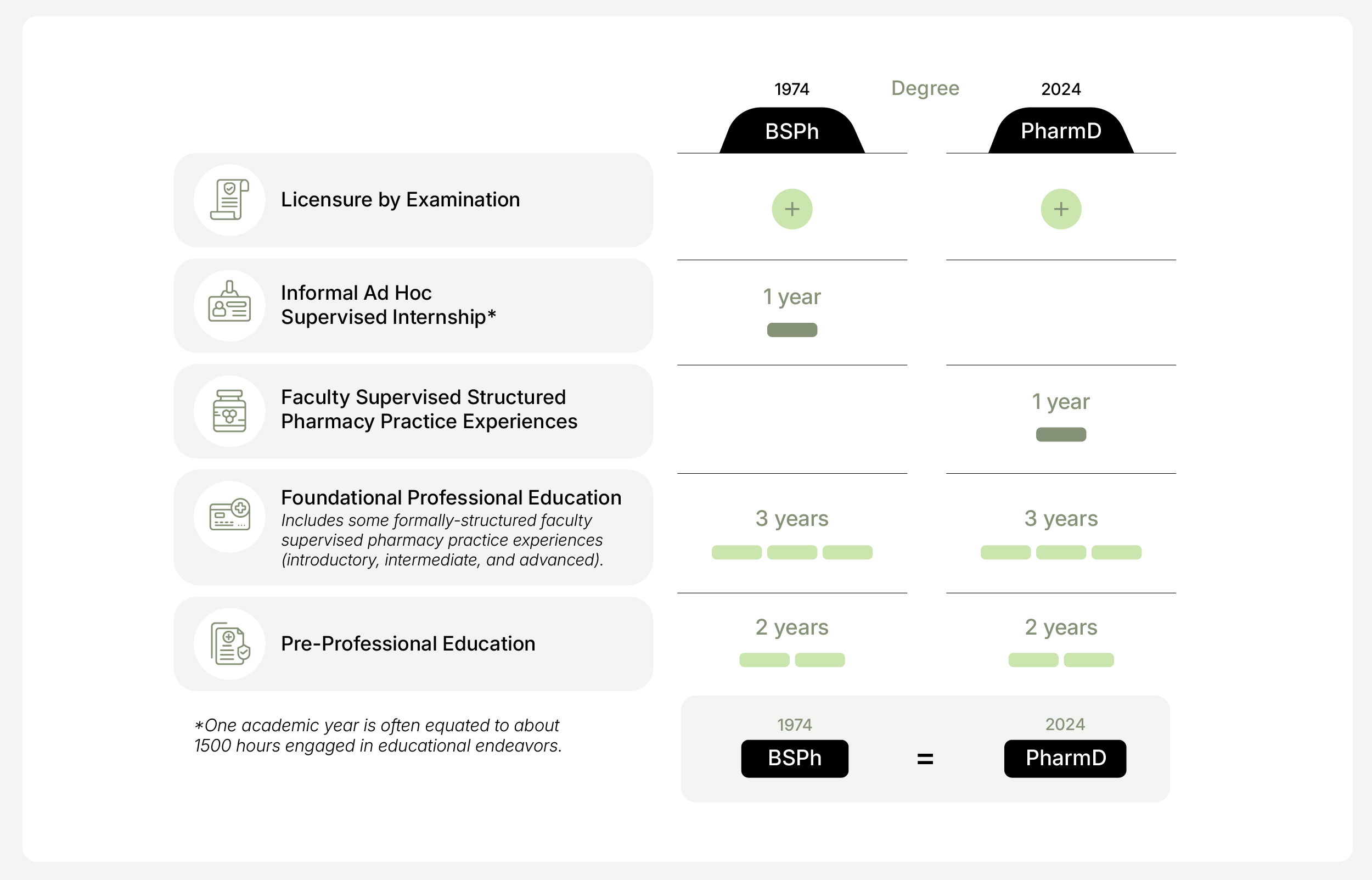Get the Recognition You Deserve with Our PharmD Pathway
BSPh to PharmD
Our PharmD pathway is designed for BSPh graduates seeking the recognition they have earned. Patients are confused about qualifications. The time has come for fairness for those who are equals.
A PharmD? You Earned It!
The PharmD Advantage: Lost or Continuing to Evolve?

In the photo above, Steve E. Harder, PharmD (second from right), receives the College’s first pharmacy diploma or certificate of equivalency from Pharmacy Dean Quentin M. Srnka, PharmD, MBA, FACA (second from left), Principal and Vice-Chancellor Bruce D. White, DO, JD (left), and College Secretary and Registrar Larry W. Bridgesmith, JD (right), in Nashville, Tennessee, on the Feast Day of Saints Cosmas and Damian, September 26, 2025.
A New Pathway for Qualified Entry-Level Bachelor of Science in Pharmacy (eg, BS, BSPh, BSPharm, BScPharm) Graduates to Obtain their Doctor of Pharmacy (PharmD) Diploma or Certificate of Equivalency with Minimum Hassle and at Nominal Cost
A Message From the Dean
Many pharmacists who graduated from US and Canadian schools received Bachelors’ (BS) degrees as the entry-level credential to practice pharmacy.
Although their time in education and training approximated that of today’s Doctor of Pharmacy (PharmD) graduates, their alma maters choose not to retroactively update their BS degrees to Doctor of Pharmacy.
If you have an entry-level professional BS in Pharmacy degree, chances are you have already accomplished everything necessary to be recognized as a Doctor of Pharmacy.
Regardless of your age and whether you now practice pharmacy, the title “Doctor” will generally convey respect and credibility, signifying your expertise and extensive education.
Other health professionals, consumers, and business associates may correlate your “Doctor” title with the high level of knowledge, skill, and specialized expertise that you already possess.
Moreover, the title “Doctor” may influence how you are perceived and addressed in professional, business, and social settings.
Saints Cosmas and Damian Health Sciences College, incorporated by the Caribbean government of Anguilla, a British Overseas Territory, verifies original source credentials of pharmacists with an undergraduate US or Canadian entry-level BS degree and recognizes equivalency with that of a Doctor of Pharmacy (PharmD).
The no-hassle online process begins with a Preliminary Application. You authorize a background screen and provide demographic information, a notarized form with a photo of your driver’s license or passport, a notarized form with a photo of your pharmacy school diploma, and $400 USD initial processing fee.
When the Board of Examiners approves your Preliminary Application, you will be requested to submit your Final Application with an updated address (for expedited delivery of your diploma or certificate of equivalency) and $1,450 USD final processing fee.
There are no additional fees, no courses to take, no examinations to pass, no manuscripts to write, and no attendance requirements.
An example of the Doctor of Pharmacy (in Latin, Pharmaciae Doctor) diploma or certificate of equivalency is avialable here: Doctor of Pharmacy Certificate.
If you desire additional information or have difficulty with any part of the Preliminary Application process, do not hesitate to contact me directly. I’m here to help.

Quentin M. Srnka, BSPh, PharmD, MBA, FACA
Direct email: pharmacy@stcosmas.org
Who Says BSPh and PharmD
Pharmacists Are Equal?
Alex Evans, PharmD, BCGP, writing in Pharmacy Times, February 18, 2019, makes three points regarding the striking similarities of BSPh and PharmD education and training:
-
“ . . there is little difference in the number of years spent in school between the Bachelor of Science and the Doctor of Pharmacy degree.”
-
“A History of the UNC School of Pharmacy (Cocolas) has, at the very bottom of the document, a comparison of a BSc curriculum and a PharmD curriculum. The primary change in the last year was that the entire experiential portion of the education moved into the school.”
-
“The didactic portion of the curriculum has also certainly evolved . . ., but there have always been curriculum changes, and in fact the curriculum in pharmacy school is already very different than when I graduated in 2010.”
Equality at a Glance

Eligibility Criteria
To be considered for a Doctor of Pharmacy (PharmD) diploma or certificate of equivalency by the Board of Examiners, a pharmacist must:
-
Hold an undergraduate entry-level professional degree from a US pharmacy school accredited by the Accreditation Council on Pharmacy Education (ACPE) or from a Canadian pharmacy school accredited by the Canadian Council for Accreditation of Pharmacy Programs (CCAPP);
-
Have or have held an unrestricted pharmacist license in a US or Canadian jurisdiction; and
-
Have a clear criminal and offender background unless preempted by law.
A message from the webmaster:

